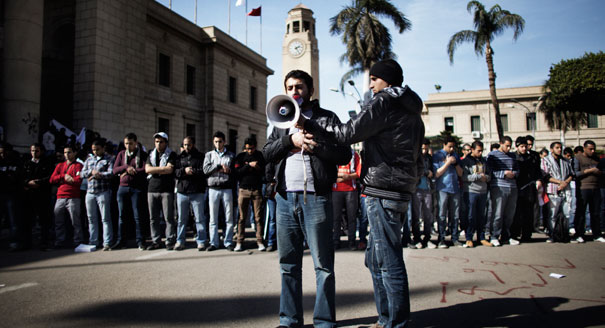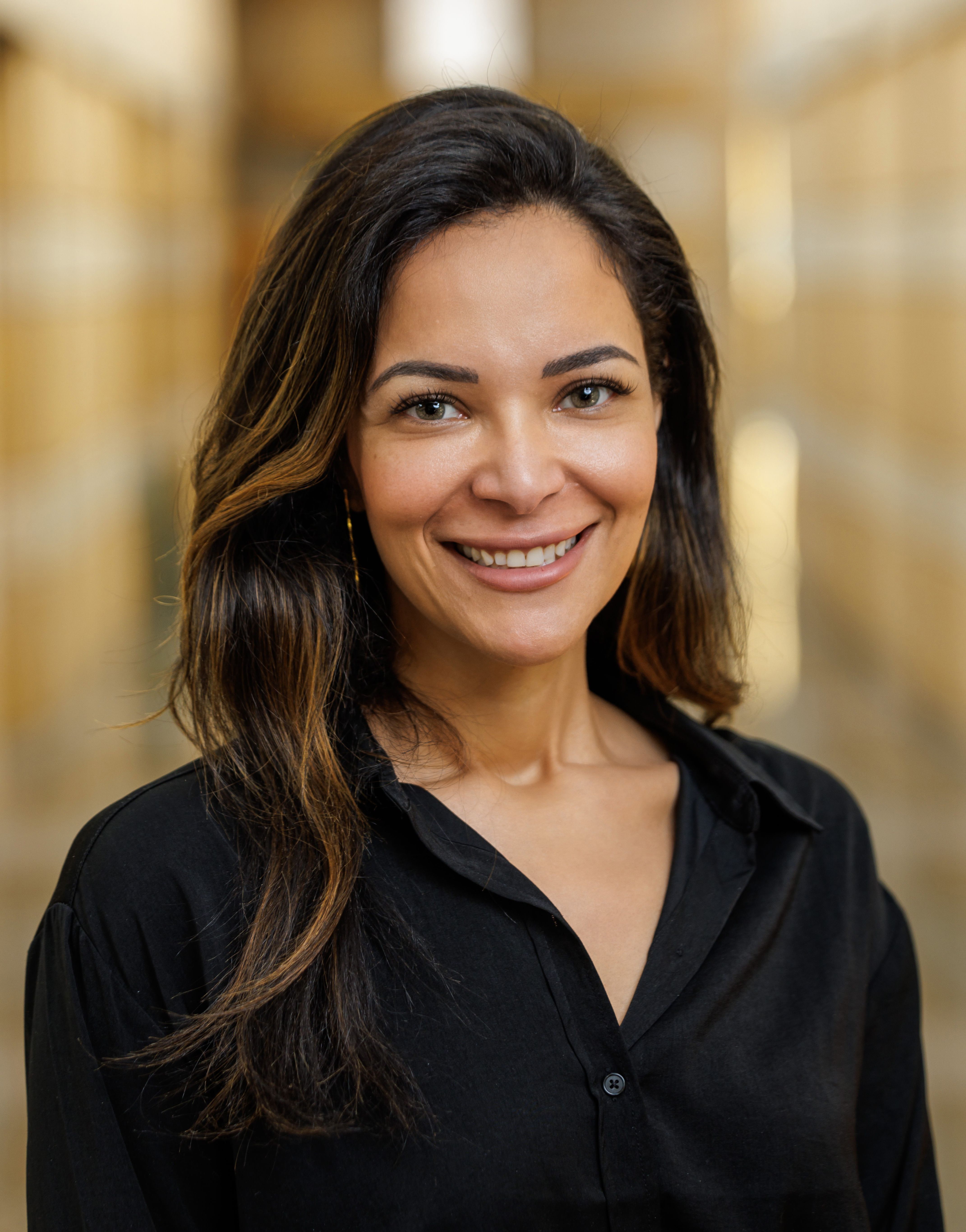Mustaqbal Misr has expanded its portfolio with remarkable speed, but a lack of transparency remains.
Yezid Sayigh
{
"authors": [
"Elham Abdul-Hameed Faraj"
],
"type": "other",
"centerAffiliationAll": "",
"centers": [
"Carnegie Endowment for International Peace",
"Malcolm H. Kerr Carnegie Middle East Center"
],
"collections": [],
"englishNewsletterAll": "",
"nonEnglishNewsletterAll": "",
"primaryCenter": "Carnegie Endowment for International Peace",
"programAffiliation": "",
"programs": [
"Middle East"
],
"projects": [],
"regions": [
"Egypt"
],
"topics": [
"Education"
]
}
Source: Getty
The changing culture of Egyptian students should be examined as the country’s youth continues to impact the political and social life. Education in Egypt is in need for a holistic reform, supporting the transition to democracy in Egypt.
The youth in Egypt, including high school students, played a crucial role in the first and second popular uprisings in January 2011 and June 2013. A set of emerging social and political norms and values, which comprise the core of culture, must have guided the actions of the youth. It is therefore important to examine the changing culture of students, particularly that of citizenship, as they continue to impact the political and social life in Egypt.
This research paper is based on focus group sessions conducted with 45 students in grade 10 (ages 15-16 years) in three provinces (mufahazat) of Egypt between March and May 2013. The provinces are: (a) the capital city Cairo where economic and political activities are concentrated; (b) the province of Fayoum (interior region); and (c) the province of Munufiya (coastal region). Although the study sample is not statistically representative of the student population, the focus group approach provides useful insight into the issues under investigation and a good test for the validity of the questions. Future surveys that employ representative samples would be guided by the findings of this study.
As a backdrop to the study, a brief review of the educational policy in Egypt before and after January 2011 is in order.
Prior to January 2011, attempts to reform the public school system failed partly due to the lack of political will, which allowed Islamists to establish their own private schools. These schools fostered Islamic values that did not favor pluralism and equality of citizens and genders. After the popular uprising in 2011, the Muslim Brotherhood controlled the educational system, introducing significant changes to it. Rather than resolve prevalent problems in public schools such as violence and drop-out, the Brotherhood focused on revising some texts and introducing new co-curricular and extra-curricular activities that promote its Islamic values and approach, which are not hospitable to the culture of democratic citizenship.
A list of values related to citizenship was prepared by the author then validated by a group of education experts in Egypt. The group approved five principal values related to: religion, authority, equality, identity, and democracy. Attitudes of students toward each of these values were examined; each of which encompassed attitudes toward several other citizenship-related issues. Accordingly, attitude toward religion included attitude toward: minorities; relations between Muslims and Christians; and the sectarian crisis. Attitude toward authority covered attitude toward: relation between ruler and ruled; relations between people and authority; relations between people and state institutions; system of governance (parliamentary, presidential, mixed); and diversity of political parties. Attitude toward gender equality encompassed attitude toward: equality in inheritance; equality in leadership positions; equality in political participation; and equality in work. Attitude toward identity included attitude toward: identity as defined by the respondent; ranking of multiple identities; and openness to other cultures. And attitude toward democracy included attitude toward: participation; pluralism and respect for the other; social responsibility; dialogue; and equality as related to social justice.
To investigate the attitudes of students towards the aforementioned citizenship issues, two to four paragraphs and sentences were read to the respondents, followed by a set of questions. In addition, a questionnaire comprised of 30 multiple-choice questions was administered to the sample of students in the three focus groups.
The overwhelming majority of students (73%) did not consider openness to other cultures as a threat to their national identity, with some variation among the three provinces. The Egyptian identity was commonly perceived to have multiple dimensions: Arab, Islamic, Coptic, and Pharonic. But the Islamic-Arab identity was prominent among 40 percent of the respondents, reflecting the strong influence of Islam on the youth. However, most students (80%) had a negative view of the regime under President Mursi, describing it as disconnected from people. They cited examples of non-democratic practices by their school administrators and in classrooms, hoping that teachers would give up their authoritarian style and communicate better with them. Furthermore, they disapproved of the changes introduced by the former government to the textbooks in the subjects of human rights and citizenship.
Most students (80%) desired to emigrate from Egypt because of its economic troubles and high unemployment. And they had no trust in state institutions, describing them as deteriorating and non-democratic. However, the percentage of students who did not trust the former Muslim Brotherhood government varied between 50% in the Fayoum province and 80% in each of Cairo and Munufiya. This result indicates the stronger influence of the Islamists in Fayoum as compared to the other two provinces.
Not surprisingly, Egyptian students expressed high respect and confidence in their national army. This reflects the non-partisan role which the army played particularly in protecting private and public property and national security during the January uprising. Democracy and pluralism were endorsed by the majority of students in addition to the concepts of tolerance, equality and justice. The overwhelming majority of students understood the importance of their peaceful coexistence with those who have different religions, approving that Christian citizens should have equal rights to Muslim citizens. Nevertheless, it is disturbing to note that a substantial percentage of students (40%) approved the use of violence to express one’s opinion or as a means of self-defense.
Attitudes towards gender issues were problematic. Whereas most students accepted the right of the woman to work and education, they rejected her right to work in certain occupations such as the army, police, and the judiciary, or to assume the presidency of the republic. And there was a consensus among students in rejecting the right of women to equal inheritance, which is the Sunni Islamic prevailing position.
The findings of this study, though not generalizable to all students, reveal the need for a holistic reform in education which supports the transition to democracy in Egypt. The reform should target the structure of the educational system, its policies, and personnel. The role of the school needs to be changed to become an active participant in the decisionmaking process in education. The entire school climate must be reformed in order to foster a culture of democratic citizenship characterized by collaboration, respect for diversity, dialogue, and cooperation.
The curriculum should be changed to deal with the limited or confused knowledge of students with regard to major civic concepts such as rule of law and gender equality. It should also resolve the serious prevailing problems of violence and school drop-outs. New educational programs inside and outside school should be developed to promote awareness about citizenship values and pluralism among students, teachers, and school administrators. Student unions and various other extra-curricular activities that aim at promoting citizenship skills should be developed as part of the broader social and political transformation in Egypt.
Prepared by Muhammad Faour, Senior Associate at Carnegie Middle East Center
Mustaqbal Misr has expanded its portfolio with remarkable speed, but a lack of transparency remains.

Yezid Sayigh
New data shows enduring American strength in AI, built on Chinese talent.

Matt Sheehan, Sophie Zhuang
Its role in facilitating security, governance, and other key components of the plan would help avoid the dangers of a permanent transitional administration.

Amr Hamzawy
Meaningful transformation in personal status law requires political will, sustained feminist advocacy, as well as a reimagining of legal authority with justice at its core.

Nermin Allam, Baneen Al Qaraghuli
They have more in common with other recent youth-led demonstrations in Nepal and Madagascar.

Sarah Yerkes, Kathryn Selfe